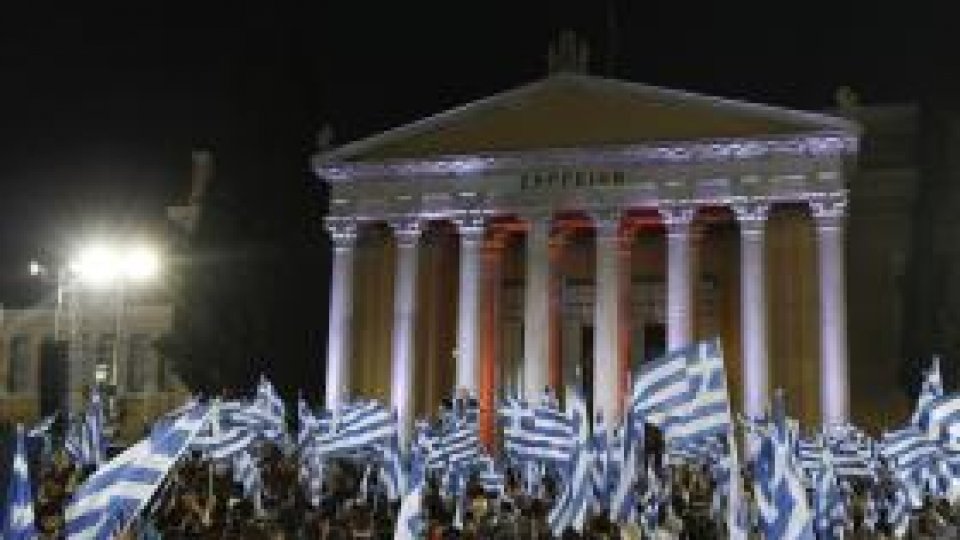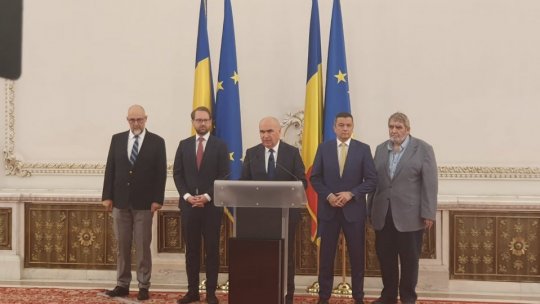General elections in Greece with European stakes
Sunday's elections are crucial to solving the economic crisis facing Greece but also for stability ensuring in the euro area.

Articol de Monica Chihaia, Atena, 17 Iunie 2012, 13:02
Greeks are returning on Sunday for new general elections to determine which team will get the country out of the delicate economic situation in which it is.
The ballot is watched anxiously throughout Europe, but also beyond and has the allure of a referendum for or against the euro, comment on AFP.
The consequences of this crucial election, which could destabilize, by contagion, the euro area, will be weighed immediately afterwards to the G20 Summit in Los Cabos, Southwestern Mexico, on which will take part Monday and Tuesday the rich countries and emerging powers.
European leaders, but also the American President, Barack Obama repeatedly warned the nearly nine million Greek voters on their vote consequences.
With only two days before polling day, radical right and left are fighting side by side to retrieve possession of a country falling into a deep recession.
An unofficial poll published Thursday shows the conservative of New Democracy leader in favourite position, earning an advance-it's true, minimum- in front of the leader of the left radical coalition, Syriza.
The right New Democracy party expresses in favour of the agreement with the EU and International Monetary Fund while the coalition of the radical left Syriza rejects all conditions of the agreement external funding.
The game of political declarations between Athens and Thessalonik
In Athens was the turn on Friday to appeal for the last time before the election of Sunday to the electorate leader of the right New Democracy Party.
Antonis Samaras resumed his pro-memorandum with the amendments already known, respectively the renegotiation of some chapters of the agreement and the underlines regarding the solving of the unemployment problems and the economic revival of Greece.
“We will not allow anyone to get us out of Europe,” he said.
At the Thessalonic, his opponent, the leader of the Coalition of the radical left, Alexis Tsipras, warned shortly ago: “The biggest threat to the country is the continuation of the memorandum subjected to a dictate of the creditors”.
Akexis Tsipras announced a period of 10 days after the election to wear a renegotiation which he called a true and tough with the European Union, where, of course, he will take the leadership of the Government.
On the other hand, the situation of Greece is located on the edge of the abyss: a GDP shrinking by 6.5 per cent, a level of official unemployment from 22.6 per cent, massive withdrawals of bank deposits by fear and public accounts that would stay on zero in the mid-July.
Possible election scenarios
International press sketched as possible scenarios the victory of the memorandum pro parties, socialists victory, anti-memorandum and, in the case of the third, a scenario that would have no winner and then it should organize the elections again.
In Greece, all political forces agree that the third round of elections should be avoided.
This common position provides hope that there be the will to strive finding, finally, the concept of governance.
There were taken into consideration during this interval, for almost a month and a half, all scenarios on finding potential government partners.
The first scenario would be the victory of the right party New Democracy.
If the party won the election, Antonis Samaras would seek to form a coalition with Socialists from PASOC and with the Democratic left, close formations to the announced programme in order to achieve a sufficient majority government.
Analysts say that the leaders of the two socialist parties, Evangelos Venizelos and Fotis Kouvelis, will not refuse to participate in a Government that will assume renegotiation of the agreement with the creditor institutions and, of course, the preventing the removal of the country from the euro area.
The second scenario, if the first party be Syriza, that will be able to secure between 100 and 140 members of Parliament, well, they will rush right away to find partners able to get the most of the others, than those who support the agreement.
Finally, a third scenario is a Government of cooperation proposed by the New Democracy, having as potential partners the Socialists from PASOC with their prospective and democratic left, even from other smaller parties, say the analysts, without imposing Antonis Samaras as premier.
Translated by Denisse Meda Bucura
MTTLC, Bucharest University














